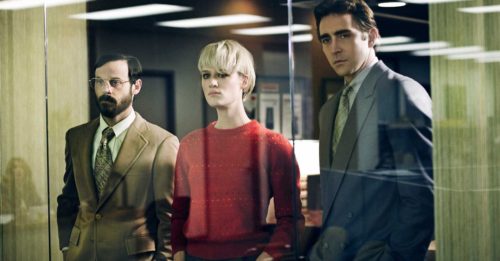
For as long as we can remember, television shows and movies have been capitalizing on their success by offering merchandise. Lunchboxes, apparel, and posters are the top items to be had no matter the era we live in. Even McDonald’s cashes in with kids’ meals toys for the latest Disney or Marvel movie that caters to the young children who beg their parents for the “free” toy with a meal. So, what is it about this merchandise that makes us scream and beg for more?
Fandom Loyalty
Whether it’s grabbing the latest Stranger Things t-shirts or sporting a Dr. Who coffee mug, the fans seem to really want more and more items featuring their favorite characters or flaunt their love of a TV show or movie. We gather around the watercooler on Monday morning to discuss the ins and outs of what just happened over on Walking Dead. Workplace lunch now finds horror movie lovers huddled together over microwaved leftovers discussing James Wan’s latest project. Star Wars fans gather and still discuss the politics of the resistance. By sporting our tee shirts and coffee mugs, we use them as beacons to find other people with whom we have commonality with. And that is a good thing!
There’s Money in It
Marketing experts know a cash cow when they see one and when it comes to popular fandoms, marketers are cashing in. Often, we start to see apparel hit the online shops and local Spencer’s stores right when you see the ratings go through the roof. If the show makes it past the first season and gaining steam, more home items may appear. Action figures and collectibles hit the markets by the airing of a second season. When it comes to movies, they often have created in anticipation that the movie will be a success. The quicker the items fly off the shelves, the more items they find to create and feed that need. Fans get to feel like they own a part of the franchise and marketers can make enough money to pay their bills for the remainder of the year.
Is it Ever Too Much?
Maybe we see it depicted in television shows or movies, that one “crazy and obsessed” fan who has everything Star Wars in their room. Big Bang Theory was certainly an excellent example of depicting the nerd stereotype that was more concerned with comic books than speaking to someone of the opposite sex. Fever Pitch is a movie that focuses in on one guy’s obsession with the Boston Red Sox.
Do we really know people like this? The answer is an astounding yes! We personally know of a woman so obsessed with comic book characters, she dresses her infant daughter in all female superhero clothing. Every day. Another woman is a horror movie fan and 85% of her movie collection is devoted to the genre. And let’s not get started on the gamers who must own the latest D&D books and discuss at length the importance of the game master role in the same way we talk about the need for government reform. Is it healthy?
For some people, it’s just a healthy release and taps into a part of them to feel connected to something bigger than they. It is only when our obsessions interfere with our work and relationships do we need to be concerned. If you can’t pay the bills but manage to spend $400 in Black Widow cosplay costuming, there is a problem. If you can’t have dinner with your family because you must be online to play World of Warcraft, there is a problem. But by all means, enjoy your passion!
 Gearfuse Technology, Science, Culture & More
Gearfuse Technology, Science, Culture & More


